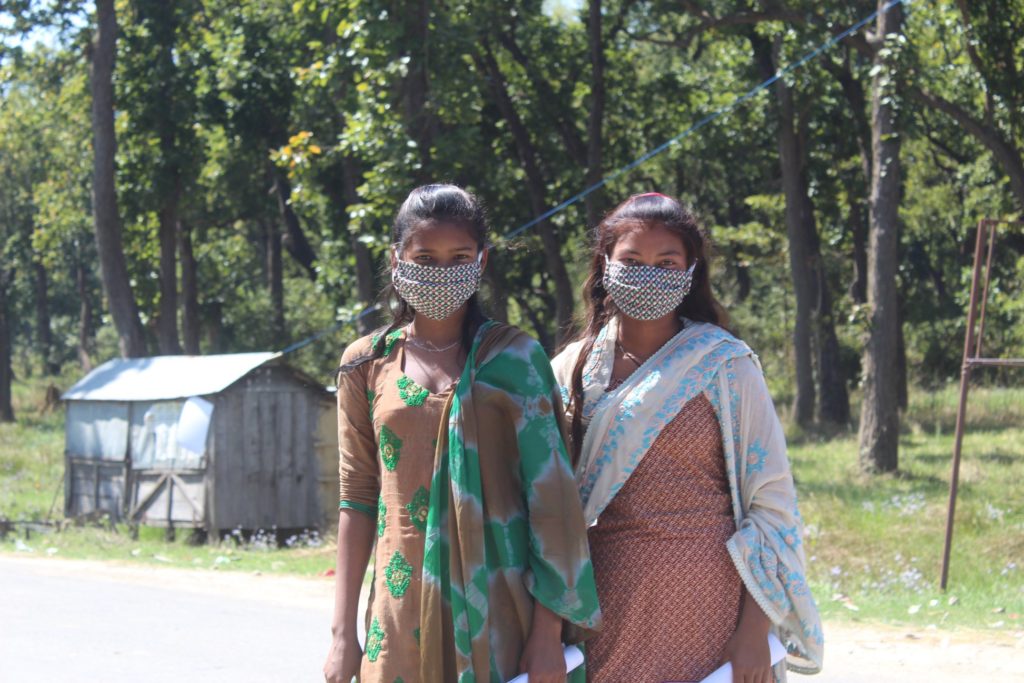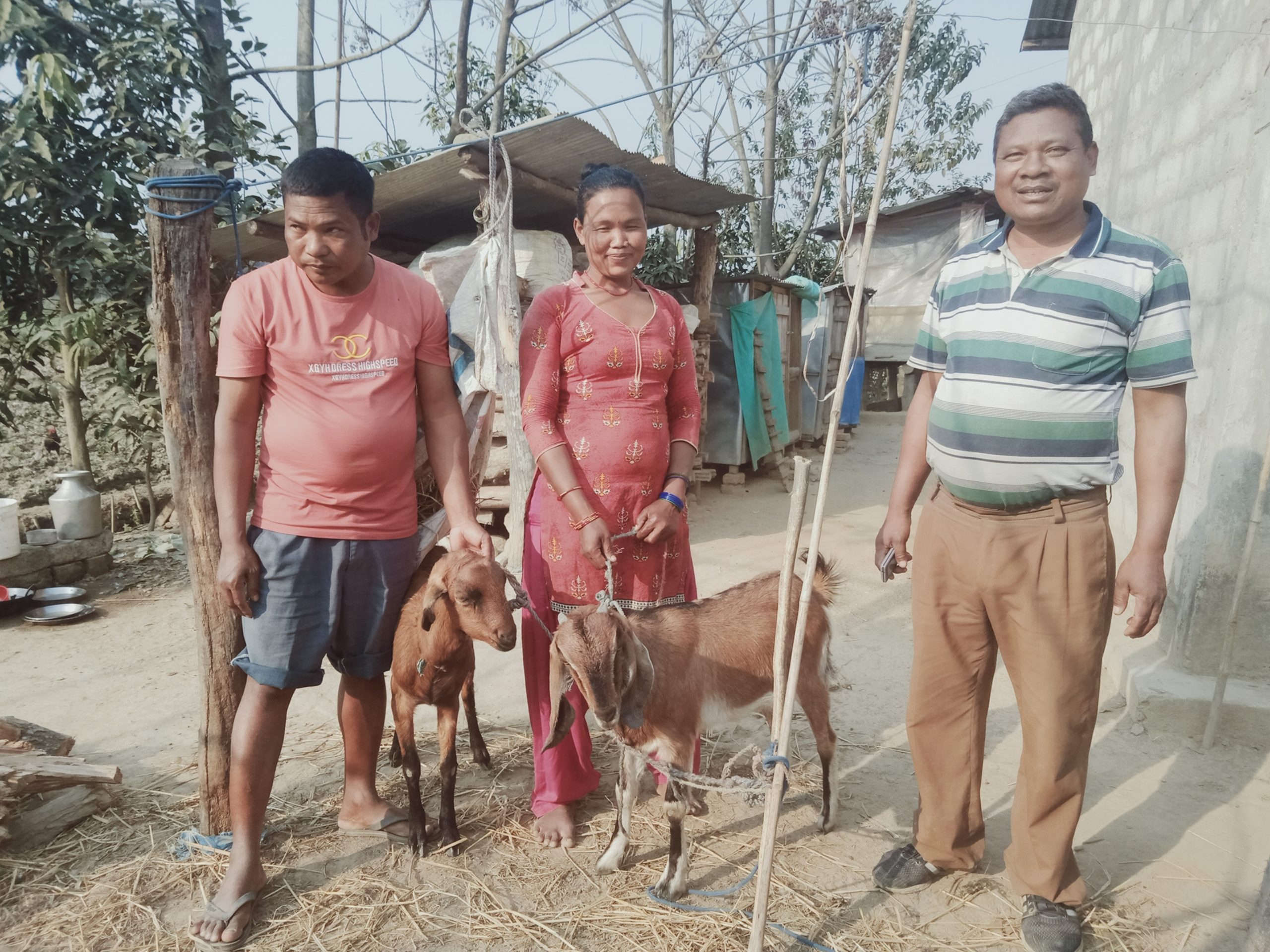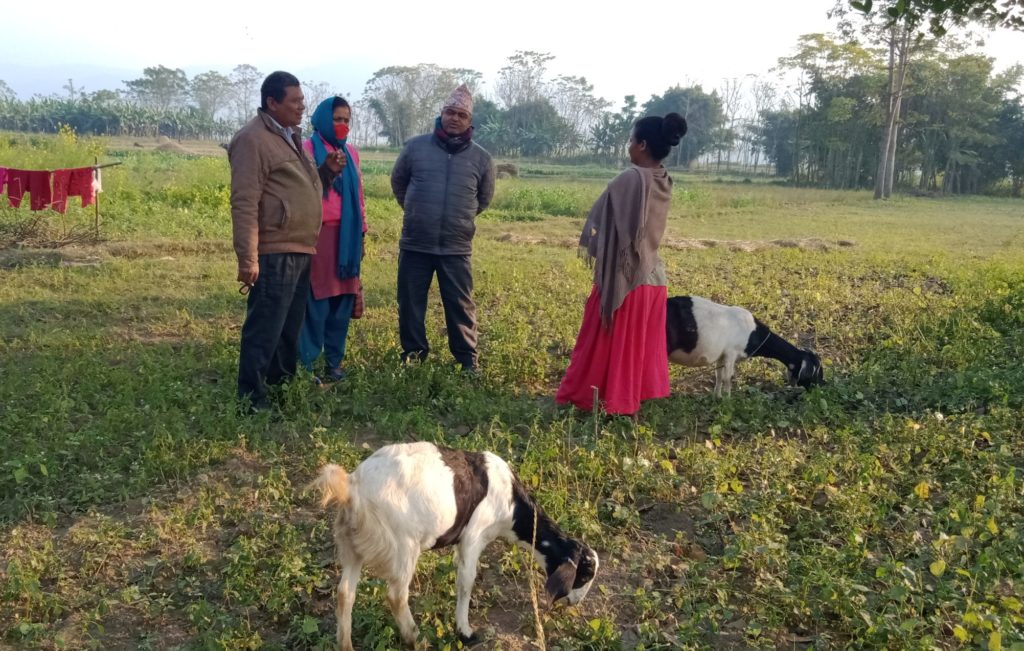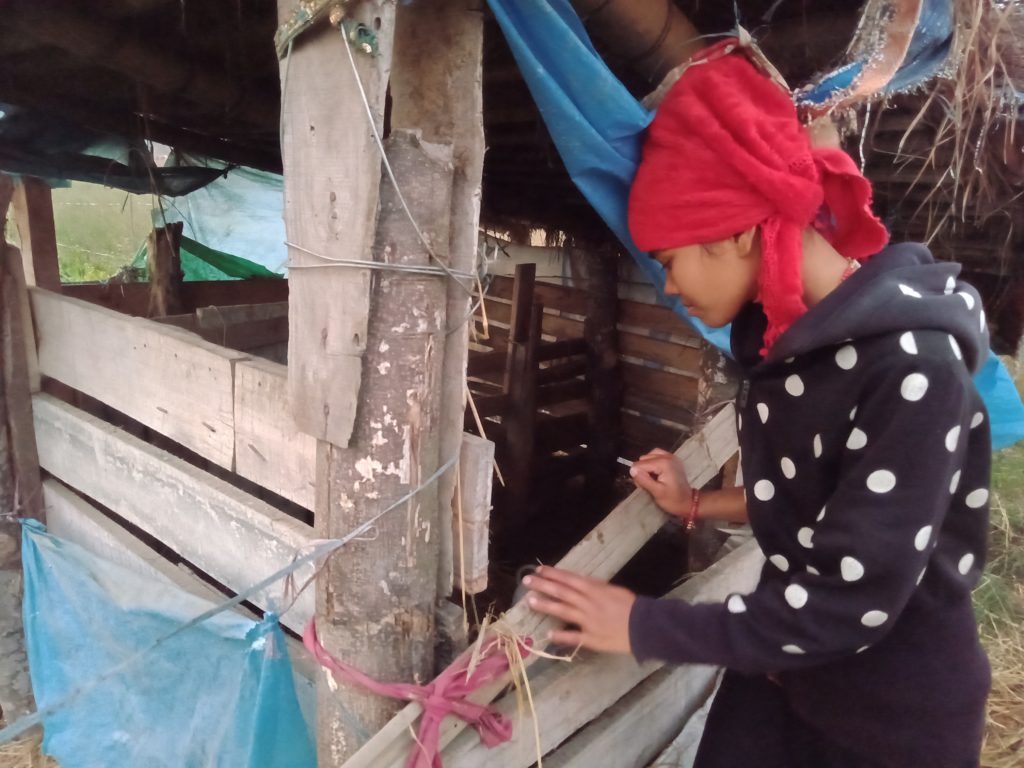When COVID-19 shutdowns swept across Nepal, families that relied on income from informal jobs were left on the brink of extreme poverty. Without that income, they knew they couldn’t afford to feed themselves or their children reliably, heat their homes to keep warm in winter, or pay to send their children back to schools should they reopen – a risk that disproportionately impacts girls.

One respondent to a READ Nepal representative collecting information about COVID said that, “The most difficult effect of the Coronavirus has been food. There is no food at home, no salt, no oil, nothing… Should we feed our children or own selves?”
In its first step to address this desperate situation, READ Nepal coordinated with local READ Centers to distribute food rations, which they were provided to over 1,091 households. They followed this up with the “Sataha” campaign, offering no-interest loans to those in need, a support structure inspired by a cultural practice of community support and cooperation. Through the Sataha Campaign, READ Centers support marginalized people suffering due to income interruption caused by COVID, empowering them to generate new income and make their way out of extreme poverty. The campaign provided loans to 20 families in the last quarter of 2020, 10 served by the Jahada Center and 10 by the Fulbari Center before the close of 2020. This was enough to support 10 families at each Center, and many of them are already thriving.

Bhimkumari and two thriving mother goats, with the Center President on the right
The Impact of COVID-19 in Nepal
The World Bank estimates that the COVID-19 pandemic will push 40 to 60 million people into extreme poverty. After nearly a year of the pandemic, poverty rates in south Asia continue to increase. Experts expect COVID-19 to erase much of the progress made in the past year, threatening chances of eradicating extreme global poverty by 2030. This is particularly dangerous in Nepal, where a large portion of the population lives in poverty.
READ Nepal’s research found that 90% of informal workers lost their jobs and all their income as a result of the pandemic. Local lenders in Nepal have stepped into this gap, offering loans to families at very high interest rates, trapping families in an even deeper cycle of poverty. In this context, READ Nepal reached out to its network of READ Centers to launch the Sataha initiative together.
Supporting the Hardest Hit with New Incomes
In the Nepalese indigenous language of Tharu, “Sataha” refers to members of the community making small loans to those in need in the form of money or material help in time of emergency, that the receiver will return to the lender when they can, with no interest charged. Deeply in-tune with the needs of their community members, READ Centers worked to provide this Sataha, ensuring that the microloans made it into the hands of the families that needed it most. The Centers enhanced the value of this support by providing training and education to help the families make investments in new, resilient income streams to lift them out of poverty such as the purchasing of livestock or opening a small shop.
After identifying 10 families in the region of the Jahada Center and 10 served by the Fulbari Center, the READ Centers worked with each applicant to develop a business plan for investing their loan. Where possible, the program has also facilitated connections to other community members who could offer technical or, entrepreneurship skills training and additional financing, to increase the chances of success.
For many of these families, the thing they needed most was a new, reliable source of income or supplemental income. Many of the plans that were selected for the first round of the Sataha initiative focused on purchasing livestock, such as two mother goats to rear, or pigs or chickens, but a few others chose other ventures, including a fruit shop, a sewing business, vegetable farming, and raising a buffalo. As of January, 2021, the 20 families that participated report they have begun to generate income from the investments they made with the seed money, sufficient to cover their basic needs, especially feeding their family.
Here are a few of their stories:

Ram Kumari, on the right, with her two new goats, and the Center Management committee members on on the left
“I was supporting my family with my earnings as a daily wage worker when the Coronavirus outbreak put a stop to all daily work. This made it difficult for me to meet my family’s needs. With the support of the Sataha campaign through the library, I bought two goats and started a business with the remaining money. Now, I am earning more than my daily wage. I have been able to look after my husband while managing my work from home.”
~Ram Kumari
“Life got very difficult because of the lockdown. I lost my job at the school. The library gave me money to start a business, which I used to make a chicken coup and purchase chickens. I raised chickens, and then earned a profit of Rs. 6,000 from selling chicks. I will continue my business by buying more chicken with this money.”
~Ganga, Jahada Center
The library provided us with Rs. 5,000 to buy and raise two goats. At that point, daily wage workers like us hadn’t been able to get work because of the Coronavirus, which had made it difficult for us to even feed ourselves. Even though we can’t work now, we have plans to expand our goat farming. We will never forget the support provided to us during these difficult times.
~Bhunu Gurung

Anju and Her Livestock Pen
Participants began receiving their funding in November and December or 2020. Once their businesses generate enough income, recipients will return the seed funding to the READ Center, which will then issue an interest-free loan to the next beneficiary on the waiting list, which is very full of worthy beneficiaries.
This lending and returning process enables Sataha to eventually serve and support many needy people in the community over time and build community resilience, using a relatively small initial investment. It is enabling families to go from being unable to feed their children to being able to start a business that generates a sustainable income, and which they can grow and maintain.
In the current climate, and even with lockdowns lifting, rural communities and families in Nepal still need locally accessible, formal economic opportunities. They need jobs that can provide consistent, regular income to feed and care for their families without needing to migrate in search of work, or work in the informal economy where they are often exploited. This means these communities need small businesses with viable plans, capable of providing them with the opportunity to earn and provide a dignified life for their families while strengthening their communities.
If you’d like to support us in helping rural families across South Asia survive and thrive in the face of COVID, please make a donation.




